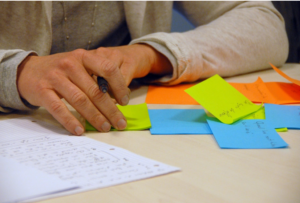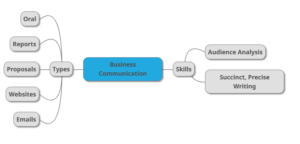by Dr. Joyce McKnight
Mentor Dr. Joyce McKnight wrote about the research and reflection processes she might go through to create a CPL request in the area of teaching children. Note that this is a lengthy document because she has tried to capture and explain all of her thought processes, and she has had years of experience in the field. Although your own process may be briefer, the following article provides excellent insight into how to start considering your knowledge for an iCPL request.
The method I have been using is a modification of approaches that can be used in all kinds of qualitative research. This one is actually called a “phenomenological” approach to educational research since you are studying “phenomena” that you have experienced yourself. This method can not only help you develop your iCPL essays, but may be used in other qualitative research projects.
Here is an example of an analysis of my own knowledge about teaching children, using a phenomenological research approach.
iCPL: Teaching Children
Here is the initial brainstorm from the preliminary survey of learning:

- Teaching middle school Sunday school
- Development of day care curriculum
- Leading camps for middle high children
- Leading programs for school age children wherever I have lived
I would then do another brainstorm adding more dimensions to the broad topic. As in any brainstorm, I sort of “wandered through” my mind, picturing myself in various situations thinking about what I had learned in various settings. Since I am a “visual learner,” I literally pictured myself in various situations, always asking, “What did I need to know to do this well?,” and “What skills did I need to do this well?,” and occasionally, “What values were important in order to do this well?”
Teaching Children
I mentally flipped through months and years of teaching middle school Sunday school and taking workshops on the topic. I asked myself, “What have I learned in order to teach this category of student?” I noted that I had learned how to:
- identify the developmental stage of early adolescence, especially in relation to faith development
- maintain a balance between discipline and fun in a non-formal educational setting
- deal with the sexual tensions in a mixed group of children in early puberty
- balance a mixture of personality types, including a boy with autism
- present complex material in a way that is understandable to children just reaching the age of formal operations (i.e. mature thinking)
- tell stories in an interesting and engaging way
- keep a discussion moving without letting any single person dominate
- move quickly but logically from one idea to another in a group with very short attention spans compared to adult and college age learners
- create my own curriculum with elements from more formal materials
In order to develop a day care curriculum, I learned about:
- the developmental stages of infancy, early childhood, and school age children
- the issues that should be addressed in the development of non-formal curricula for these age groups
- how to enable day care workers and administrators to work effectively with children
- the importance of coordination of effort among parents, administrators, and direct care providers
In order to lead camps for middle school children, I learned how to:
- apply the same things I needed to know to teach Middle School Sunday School
- work with children who are away from home with issues such as homesickness
- teach topics such as nature study, drama, and arts and crafts
- manage activities-based learning such as swimming, challenge courses, hikes, etc. maintaining both interest and safety
- settle conflicts among campers and manage the “form,” “storm,” “norm,” and “perform” aspects of a week of intense living together
- help relatively inexperienced camp counselors work effectively with children
In order to lead activities for children in a variety of situations, I learned to:
- work with diverse racial and ethnic groups
- structure programs for diverse age groups/developmental stages
- develop positive relationships with individual children
- develop programs for children of various socio-economic classes
- develop programs for children with various interests and learning styles
- set measurable learning goals and objectives
After completing this expanded brainstorm, I might use the coding or categorizing technique, or I might just review my lists for common themes, moving up and down the list, intuitively combining and recombining themes. I used the latter technique in this example.
Theme One: Developmental Issues
One theme I discerned was that I had developed an understanding how developmental issues of various age groups affected the content and the process of learning.
The list from my initial brainstorm included the following:
- the developmental stage of early adolescence
- sexual tensions in a mixed gender group in early puberty
- presenting abstract material to a group of children moving from concrete thinking to formal operations
- the developmental stages of infants, toddlers, pre-schoolers, and school age children
I then asked myself, “Is a knowledge of developmental issues an important part of college-level learning in teaching children?” Since the answer is “yes,” I moved to a second question: “Is my own learning in this area college level?” Again the answer is “yes,” based on my knowledge of what is usually taught in college-level child development courses. I also asked if my knowledge and skills in child development have now moved beyond the single training course on Piaget that I took. Since the answer is “yes” to all of these questions, I know I will include knowledge of child development in my essay.
Once I identified child development as an important theme, I had a methodological choice. I could move on to the next component of the essay or I could take the time to focus on how I learned about child development. Since I like to focus on one thing at a time, I chose to list the places where I learned the child development component of teaching children. However, it would have been equally valid to analyze my learning in each area and then go back and identify sources.
I have learned about child development through:
- preparing to teach “Life Span Development”
- reading a college-level textbook on child development
- attending various sessions on infant-toddler development at conferences
- attending training in teaching Sunday school through my church, which emphasized developmental stages, especially in faith development
- discussing issues in child development with others, particularly a colleague who is an expert in the field
- thinking about specific ways to reach particular children and how their developmental phase related to the strategies need to be of help to them
- teaching about basic child development in introductory sociology and psychology classes for eighteen years
As you can see, my knowledge of child development came from several formal sources (the training classes), non-formal sources (the conferences and workshops) and informal sources (preparing to teach, reading books, talks with experts, and thinking). This will probably also be true of your knowledge.
Theme Two: Group Dynamics or Classroom Management
I have learned how to:
- balance between discipline and fun in a non-formal educational setting
- balance a mixture of personality types, including a boy with autism
- keep a discussion moving without letting any single person dominate
- move quickly but logically from one idea to another in a group with very short attention spans compared to adult and college age learners
- enable day care workers and administrators to work effectively with children
- work with children who are away from home with issues such as homesickness
- manage activities-based learning such as swimming, challenge courses, hikes, etc. while maintaining both interest and safety
- settle conflicts among campers and manage the “form,” “storm,” “norm,” and “perform” aspects of a week of intense living together
- help camp counselors work effectively with children
- work with diverse racial and ethnic groups (including how to help them get along with each other)
- structure programs for diverse age groups/developmental stages (and help them get along with each other)
- develop programs for children of various socio-economic classes
On further reflection on the emerging theme of group dynamics and classroom management, I realized that I had also learned many things:
- Yelling at children rarely, if ever, helps unless there is immediate danger.
- Children respond well to passion and compassion. They appreciate willingness to listen, direct expressions of caring, “I messages” where they are clear about your point of view, and an adult who apologizes when needed.
- Children like rituals and rhythm to their lives…a “talking stick” that means its time to share their weekly journey, a campfire at the end of a long day, etc.
- Children like to know what to expect and will take goals very seriously.
- Time out usually works with younger children. A calming activity often works with older ones.
- Most children really like to learn. They have interesting questions and often have a creative point of view that can be challenging to adults. A non-defensive approach to learning “with” them works well.
- It is very important to observe children interacting with one another. There is always a “pecking” order with natural leaders emerging. Developing an alliance between the adult leader and these natural leaders is often critical in maintaining an environment that is fun and safe—and where learning can occur.
Again I applied these questions: “Is knowing about and being able to apply group dynamics and discipline an important part of college-level learning in teaching children?” Since the answer is “yes,” I moved to a second question: “Is my own learning in this area college level?” Again the answer is “yes.” Since I have never had a formal course in classroom management the question of redundancy of learning would not be relevant here.
I have learned about group dynamics and discipline through:
- action and reflection on action. (In other words, I have thought long and hard about what works and what doesn’t.)
- reading various articles on discipline, especially parenting articles through the years
- attending various training workshops on working with children
- applying general principles of group dynamics learned and taught in sociology and social psychology classes in work with children
- seeking advice from more experienced teachers and observing them in action
- trying out ideas learned from more experienced teachers
- trial and error and learning the hard way that some things just don’t work well
Theme Three: Designing Educational Programs for Children
I have learned how to:
- present complex material in a way that is understandable to children just reaching the age of formal operations
- present material to younger children who are in the pre-operational or concrete operational phases of thinking
- create my own curriculum with elements from more formal materials or from primary sources
- structure interesting programs for diverse age groups/developmental stages
- develop programs for children of various socio-economic classes
- develop programs for children with various interests and learning styles
- set measurable learning goals and objectives for the total program
- involve children (when possible) in planning their own activities
- develop programs of various lengths from an hour or so to several days
I have learned about designing educational programs for children through:
- combining (synthesizing) basic principles of educational program design learned in adult education courses with principles of child development
- intentional reflection (formative evaluation) on various programs, making modifications as needed
- attending conferences to get ideas for programming
- observing other programs to determine what works
- intentional planning with colleagues in developing collaborative programs.
Theme Four: Teaching Techniques
I have learned how to:
- maintain a balance between discipline and fun in a non-formal educational setting
- present complex material in a way that is understandable to children just reaching the age of formal operations
- tell stories in an interesting and engaging way
- keep a discussion moving without letting any single person dominate
- move quickly but logically from one idea to another in a group with very short attention spans compared to adult and college age learners
- teach topics such as nature study, drama, and arts and crafts
- manage activities-based learning such as swimming, challenge courses, hikes, etc. maintaining both interest and safety
- develop programs for children with various interests and learning styles
- understand the importance of listening to children and working with their individual interests and concerns (the idea of the “teachable moment” or Vygotsky’s “Zone of Proximal Development”)
Again I apply the questions “Is being able to apply teaching techniques effectively an important part of college level learning in Teaching Children?” Since the answer is “yes,” I would move to a second question: “Is my own learning in this area college-level?” Again the answer is “yes.” Since I have never had a formal course in teaching children the redundancy of learning would not be relevant here.
I have learned about teaching children through:
- combining (synthesizing) basic principles of teaching leaned in adult education courses with principles of child development
- intentional reflection (formative evaluation) on various techniques, making modifications as needed
- attending conferences to get ideas
- observing other teachers to determine what works for them
- reflection on the teaching/learning interaction with other teachers
- formative evaluation of different events
- talking with the children themselves about what they like and dislike
- informally evaluating the children’s learning through reviews etc., and then reflecting on which of my teaching approaches seemed to result in the ideas “sticking”
- comparing and contrasting what I have learned about teaching adults and college-age students with teaching skills needed for younger people, choosing what seems common to all teaching situations, and sifting out concepts that seem age specific
- having people observe my work and give me feedback
Final Analysis

If I were working with a mentor I would share my raw data with her at this point, discuss how many credits to request, and check to see if my name for my experiential knowledge accurately represented that knowledge. In this case, I realized that I know a lot about non-formal teaching and learning with children, but I really do not know very much about formal classroom teaching. Moreover, various mentors over the years have warned me that classroom teaching is a very specialized area. I decided to change the title of my iCPL request to Teaching Children in Non-formal Settings. I also decided that I really do not have advanced-level knowledge in this topic, so I decided to request introductory credit. Since most of my knowledge is in the applied area rather than theory, I decided to ask for non-liberal credit. And, since my knowledge is fairly broad, I decided to request 4 credits.



 Read Course Descriptions
Read Course Descriptions

